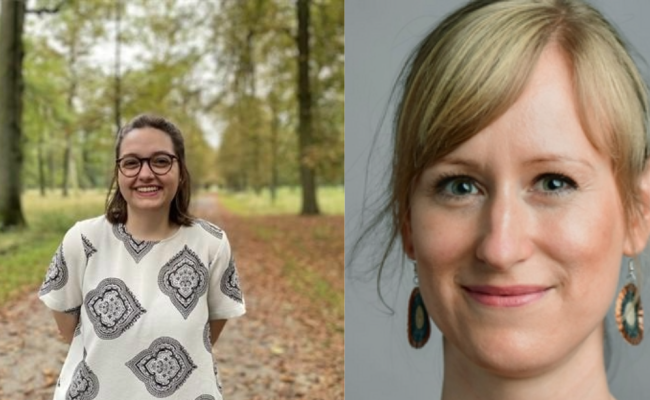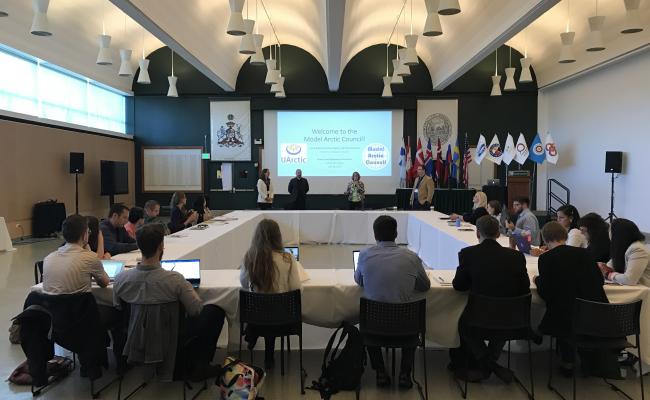Arctic Circle Assembly 2024: “Scientists Are Natural Diplomats”
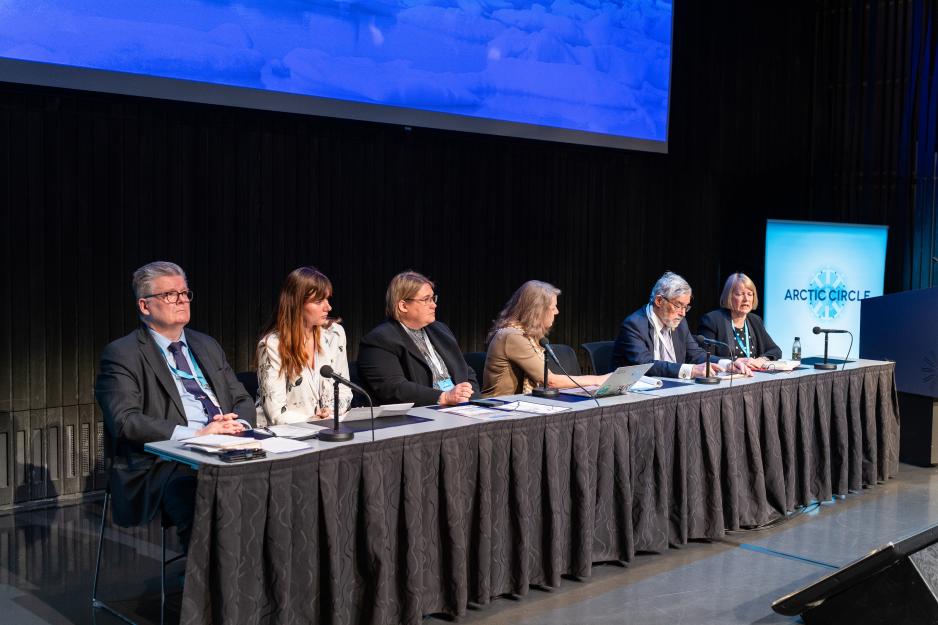
The panel of the Arctic Circle Assembly session titled "The Future of Polar Science Diplomacy: A Critical Mission in Uncertain Times." From the left: Petteri Vuorimäki, Senior Arctic Official & Ambassador of Arctic Affairs, Ministry for Foreign Affairs of Finland; Salomé Mormentyn, Polar Initiative Manager; Gerlis Fugmann, Executive Secretary, International Arctic Science Committee (IASC); Margaret D. Williams, Senior Fellow, Arctic Initiative, Belfer Centre; John P. Holdren, Research Professor & Co-Director of the Science, Technology, and Public Policy Program, Belfer Center and Jane Francis, Director, British Antarctic Survey. (Photo: the Arctic Circle Assembly)
Reykjavik (High North News): At this year's Arctic Circle Assembly, science diplomacy is one of the buzzwords that resonates throughout sessions, debates, and lectures. "Scientists are natural diplomats, as they care deeply about science and not so much about politics," says Jane Francis, Director of the British Antarctic Survey.
After Russia's invasion of Ukraine in 2022 and the consequent suspension of international research cooperation with Russia, the term science diplomacy has gained increased relevance and importance.
Science diplomacy entails scientific exchanges and cross-border collaboration of scientists and/or scientific organizations to perform diplomatic functions in international relations.
Science diplomacy plays a vital role in combatting climate change in the vulnerable Arctic region. The eight Arctic states depend on research cooperation to collect data and share costs and logistic challenges in a remote and difficult region to conduct research.
Yet, geopolitical tensions and conflicts make cooperation and knowledge sharing difficult. Some believe that scientists and the bonds between them have been the undercurrent that has kept international cooperation afloat.
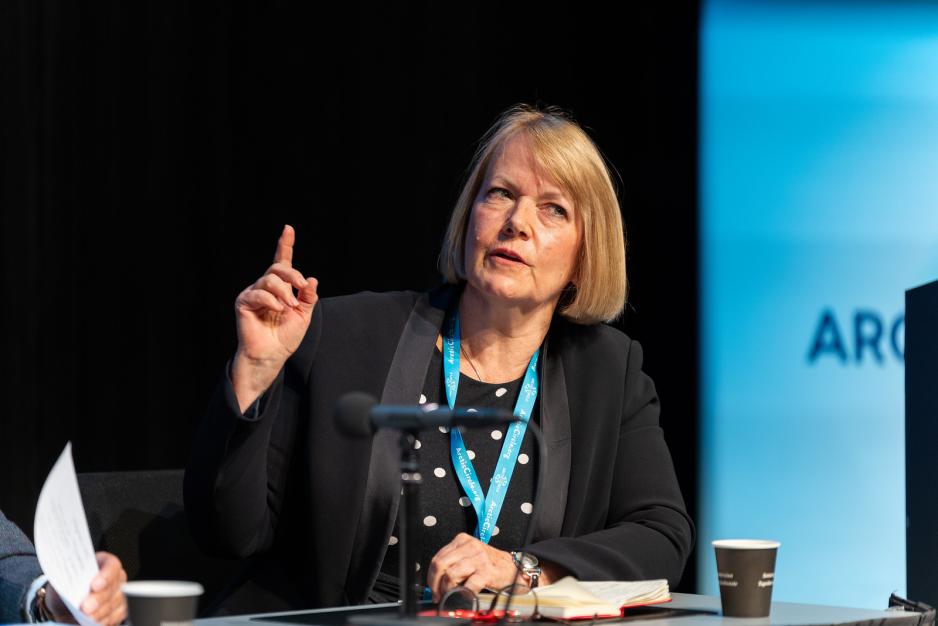
Jane Francis, Director, British Antarctic Survey. (Photo: the Arctic Circle Assembly)
"Scientists are natural diplomats because they are so interested in their science, and they are not really interested in politics, are they? So they work together," says Jane Francis, Director of the British Antarctic Survey, during an Arctic Circle Assembly session titled "The Future of Polar Science Diplomacy: A Critical Mission in Uncertain Times."
She highlighted that scientists recognize the vastness and importance of answering the questions about how the poles are changing, so they want to collaborate to get "the best answers, the best understanding, and the best forecast for the future."
What is science diplomacy?
The EU defines science diplomacy in three parts:
– Diplomacy for science – the use of diplomatic action to facilitate international scientific collaboration, e.g., by negotiating R&D agreements and exchange programs or enabling the establishment of international research infrastructures;
– Science for diplomacy – the use of science as a soft power to advance diplomatic objectives, e.g., for building bridges between nations and creating goodwill on which diplomatic relations can be built;
– Science in diplomacy – the direct support of diplomatic processes through science, e.g., by providing scientific advice and evidence to inform and support decision-making in foreign and security policies.
Need science to produce new thoughts
Petteri Vuorimäki, Senior Arctic Official and Finland's Ambassador to the Arctic at the Arctic Circle Assembly. (Photo: Birgitte Martinussen)
Petteri Vuorimäki, Senior Arctic Official and Finland's Ambassador to the Arctic says science is needed to prevent us from repeating the same old thoughts.
"I read somewhere that an average human being thinks 60,000 thoughts every day. Only 1,000 of them are new thoughts," he said.
"We need science and scientists to bring us new thoughts. These are the ones that will save us."
Vuorimäki made sure to emphasize the importance of the Arctic Council in regard to science diplomacy:
"The Arctic Council was not dead, is not dead, and will not die."
"The Arctic Council is perhaps the most important circumpolar format to pursue common work, including in the field of science," said the diplomat to an engaged audience in the Harpa concert hall in Reykjavik.
"Despite the problems that we have, science must prevail if we are to prevail."
Bonds of mutual trust and respect
John P. Holdren, Research Professor and Co-Director of the Science, Technology, and Public Policy Program at the Belfer Center at the Arctic Circle Assembly. (Photo: Birgitte Martinussen)
John P. Holdren, Research Professor and Co-Director of the Science, Technology, and Public Policy Program at the Belfer Center, says that bonds of mutual trust and respect within the scientific community can have large and unexpected diplomatic benefits when the scientists rise to positions of political influence in their countries.
He highlighted several examples of such successful science diplomacy endeavors, including an interaction with a Chinese scientist on air pollution.
"As a result of that interaction, he and I became very active in discussions to reach an agreement between the US and China on climate policy. That contributed to the statement by President Jinping and President Obama jointly in Beijing in 2014, in which the US and China, the world's biggest economies and emitters of greenhouse gases, recognized climate change as a surpassing problem for the 21st century and that both were prepared to lead the addressing of the problem globally. "
"That statement in 2014 contributed very substantially to the success of the Paris climate agreement a year later. Total serendipity."
The Arctic Council was not dead, is not dead, and will not die.
New US Arctic Ambassador
Holden also highlighted the appointment of Mike Sfraga as the US' first-ever Ambassador-at-Large for Arctic Affairs as an illustration of significant science diplomacy.
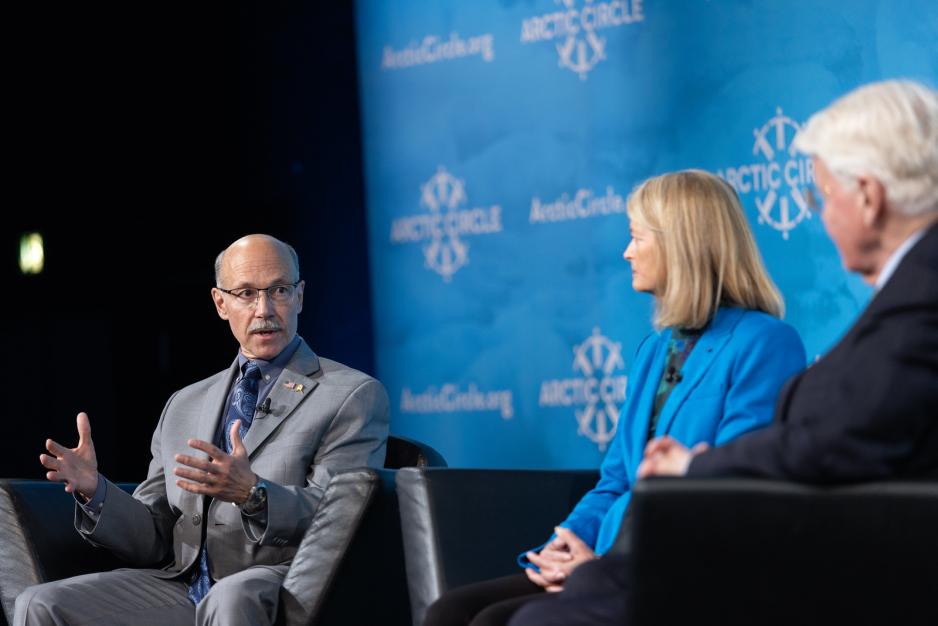
Mike Sfraga is the US' new and first-ever Ambassador-at-Large for Arctic Affairs. (Photo: the Arctic Circle)
Sfraga, a geologist, chairs the US Arctic Research Commission and founded the Polar Institute at the Wilson Center in Washington, D.C. He is also a former faculty member and administrator at the University of Alaska Fairbanks, helped establish the University of the Arctic, and has several other Arctic-related accomplishments.
"This is another case of someone building on the mutual respect and trust developed in scientific collaborations to become an extraordinarily effective Arctic science diplomat," says Holden.
"This pathway has been important in so many ways that could not have been predicted," he concludes.


